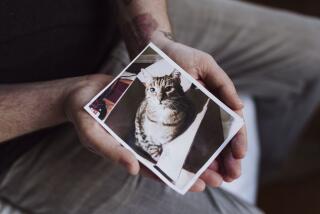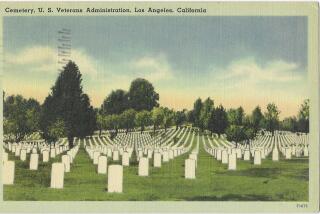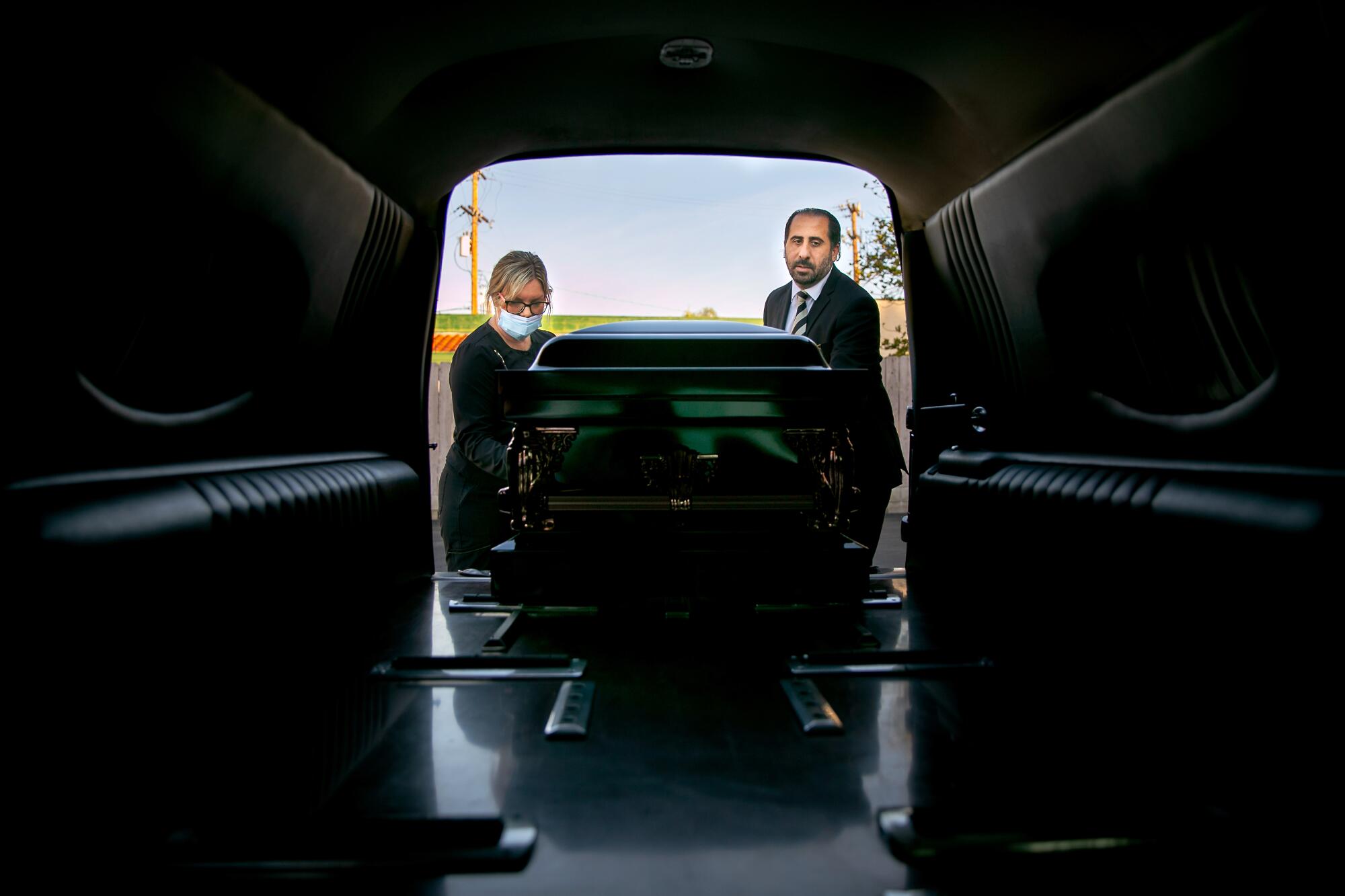
“I used to be scared to do this kind of work. Now it’s all I do.”
- Share via
When Robert Zakar arrived at the mortuary his family owns in El Cajon, it was not yet 8 a.m. Four bodies in caskets ready for morning burials were lined up in the chapel. Two more were being prepared for afternoon services.
It was going to be a busy day. They’re all busy days now.
COVID-19, which claimed almost 600 lives in San Diego County in December — a one-month surge of more than 50 percent in the local death toll — has altered the cadence of final farewells.
That’s meant a steady stream of 15-hour days for Zakar, whose East County Mortuary is one of about 100 funeral homes in the region. It sent 90 bodies to their final rests in December alone, double the usual monthly average.
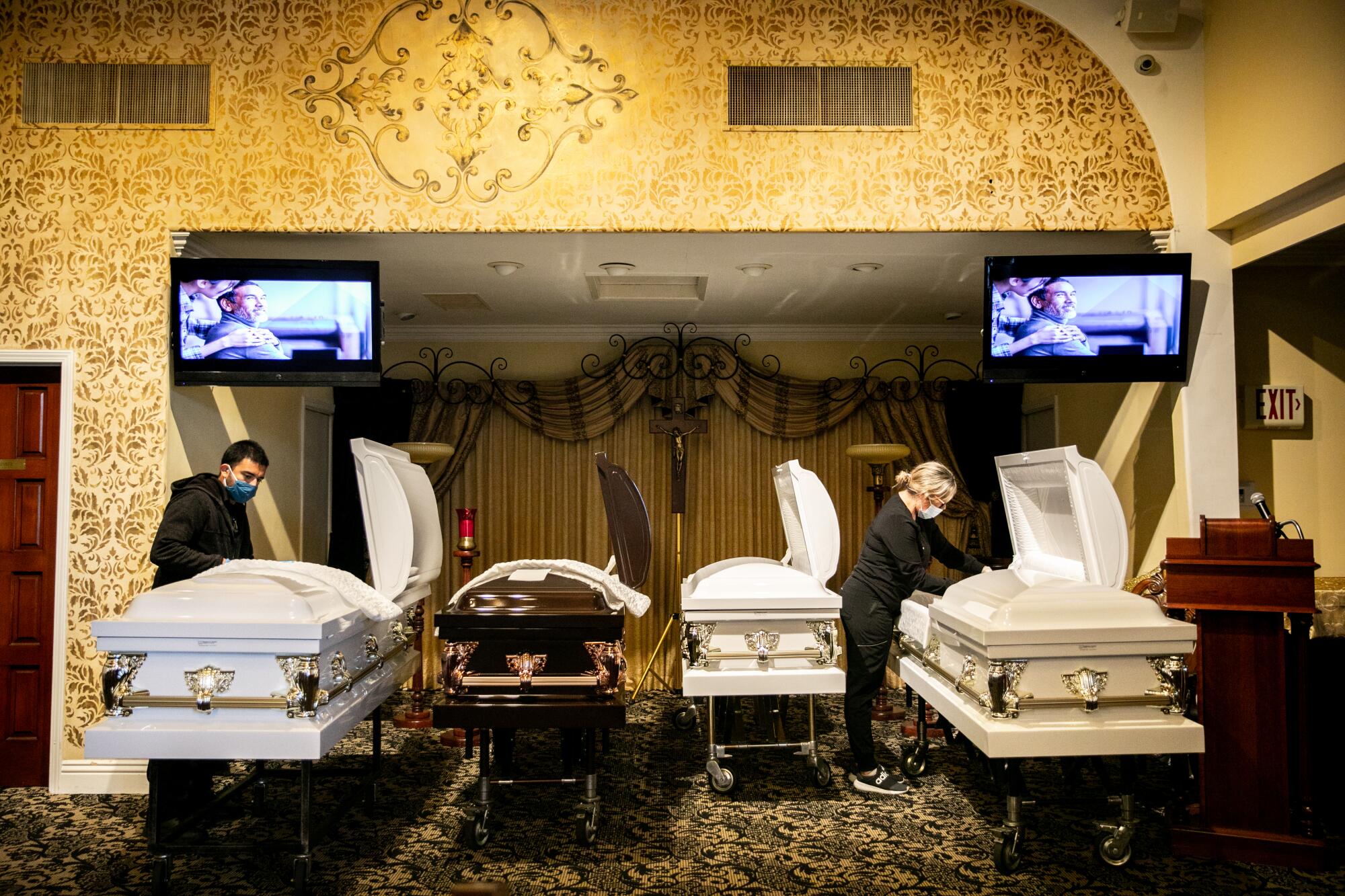
“It’s been nonstop,” Zakar said as he grabbed a cup of coffee in the mortuary’s upstairs office and glanced at the wall where a large monitor displayed a spreadsheet full of names of the newly deceased.
Zakar bought the funeral home in 2011 and has been trying to grow the business. But not like this.
Not with a phone that rings all the time. Not with a reception room he’s had to turn into storage for caskets. Not with shipping companies so swamped they can’t deliver orders for new crucifixes in time. He had to borrow a box of the metal crosses, used in Catholic services, from another mortuary.
He hasn’t had to turn anyone away, and doesn’t expect to, although sometimes his embalmer, Kristy Oliver, works so late into the night to keep a backlog at bay she winds up sleeping on a couch in the mortuary.
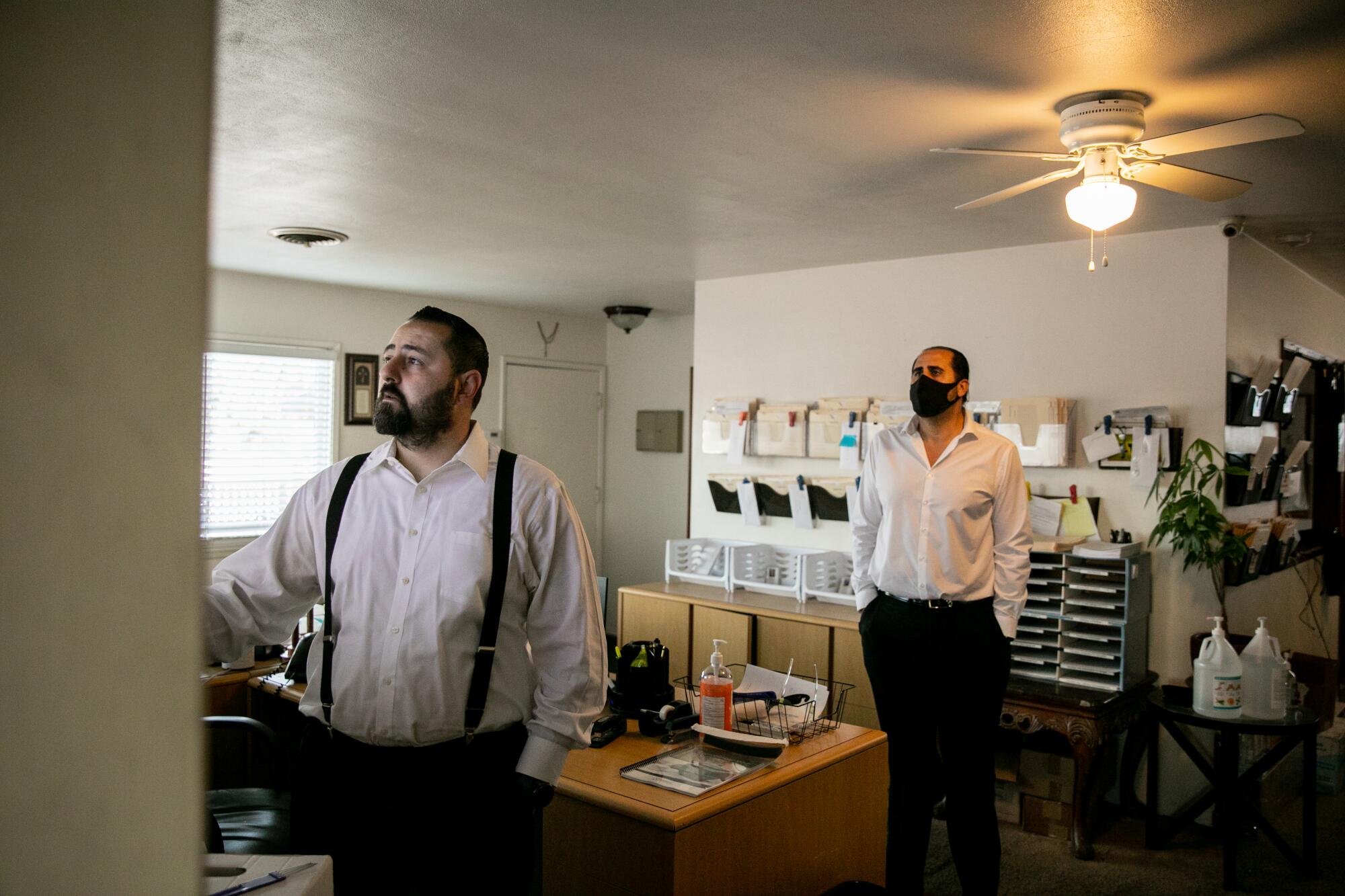
“You do what it takes to help the families,” she said.
“Help” is a word heard often in mortuaries, this one included, but it’s gotten more complicated during the pandemic. Traditional ways of saying goodbye — large gatherings of people sharing their stories and their grief — have been curtailed by restrictions aimed at slowing the spread of the virus.
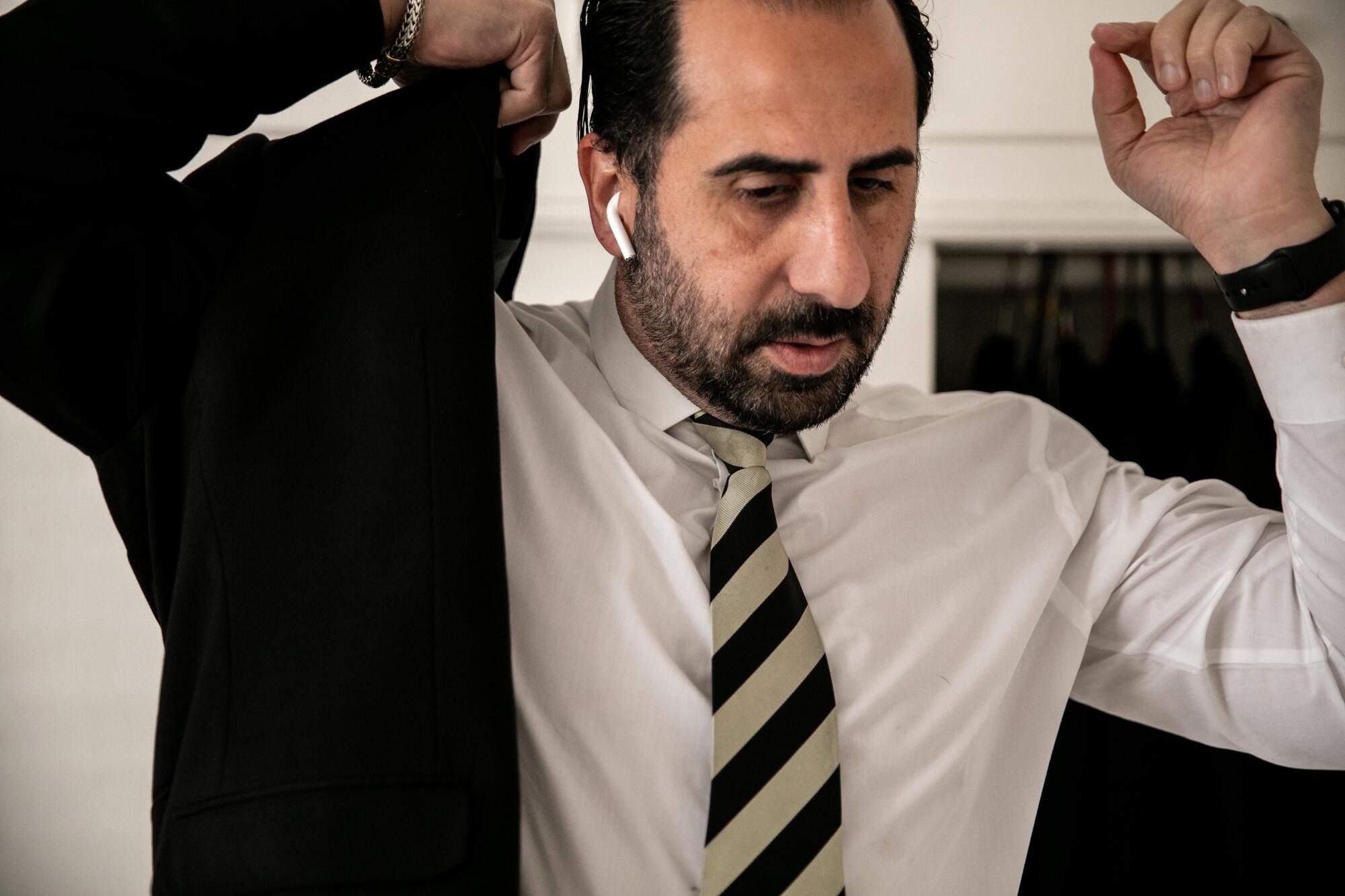
“You can’t give people hugs anymore,” Zakar said.
He did a graveside service Wednesday morning at Singing Hills Memorial Park in El Cajon that was attended by six people wearing masks and sitting in chairs spread several feet apart. A cemetery worker livestreamed the service on a tablet for others watching from home, panning the grounds at one point to give them a view of the surroundings.
When it was over, Zakar knelt near one of the mourners and told her to call if she needed anything else.
Then he rushed to his car. He had to get back to the mortuary to handle another burial, and then another one after that.
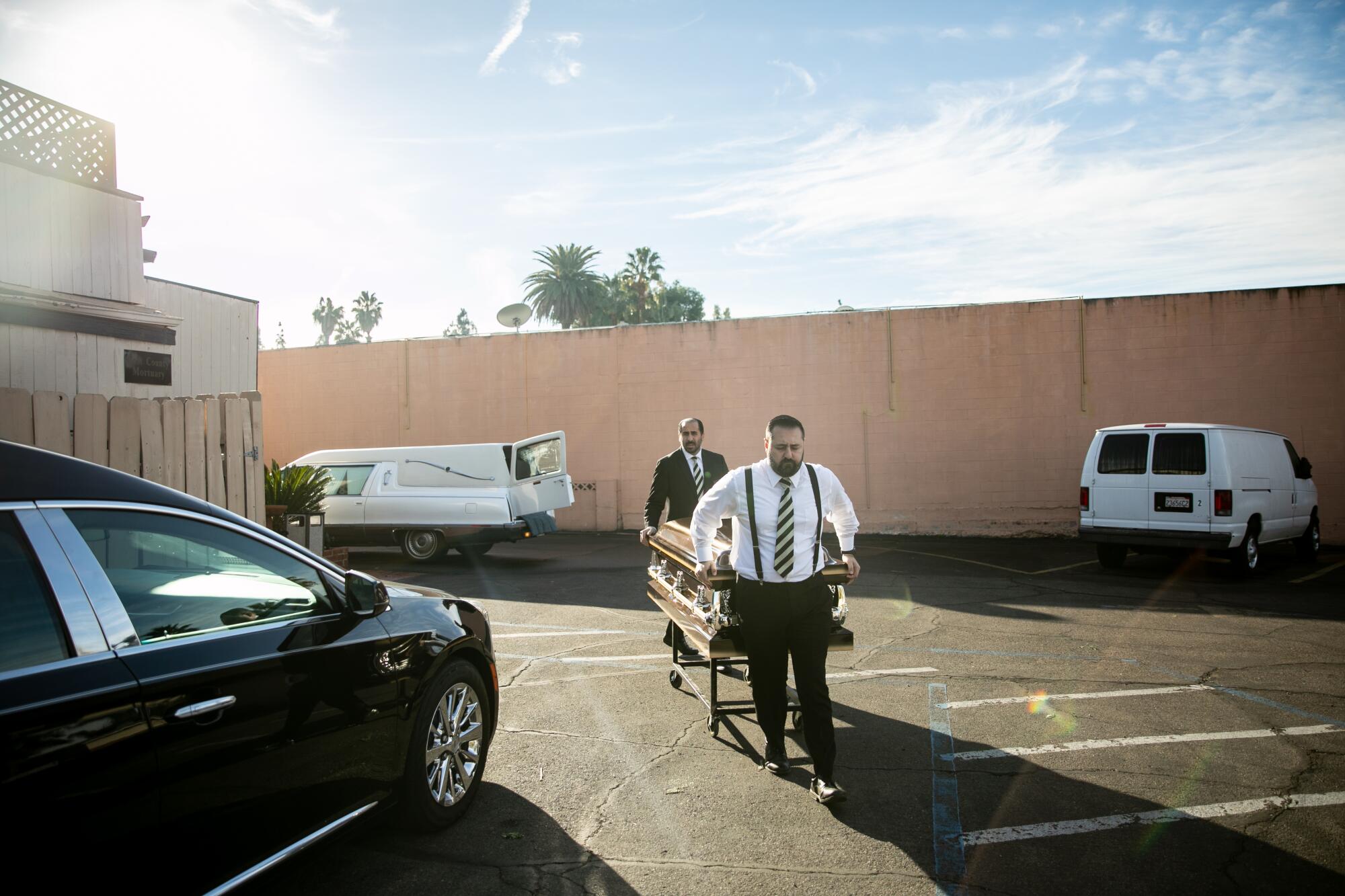
Taking precautions
Zakar, 47, used to be afraid of death.
He and a brother owned liquor stores and gas stations in town. They didn’t like it much.
They got to know a local funeral home director who came into one of their stores regularly. He talked about mortuary service, talked about how much he liked helping people. The brothers were intrigued.
About 16 years ago, they started working in the industry, Zakar on the mortuary side and his brother on the transportation side.
Nine years ago, Zakar took over what had been the Paris Frederick mortuary on North Magnolia Avenue, a two-story building with a chapel on the ground floor, offices upstairs and a garage out back that’s so filled with caskets there’s only room to park one of the three hearses.
“I used to be scared to do this kind of work,” he said. “Now it’s all I do.”
The mortuary handled about 530 bodies in 2019, a mixture of burials and cremations. Last year: 618. Six days into the new year, there were already a dozen on the spreadsheet in the office, a pace that would put them at 730 for 2021.
Since the latest COVID-19 surge, the coronavirus has been a factor in about 40% to 50% of the deaths that come to the funeral home, Zakar estimated.
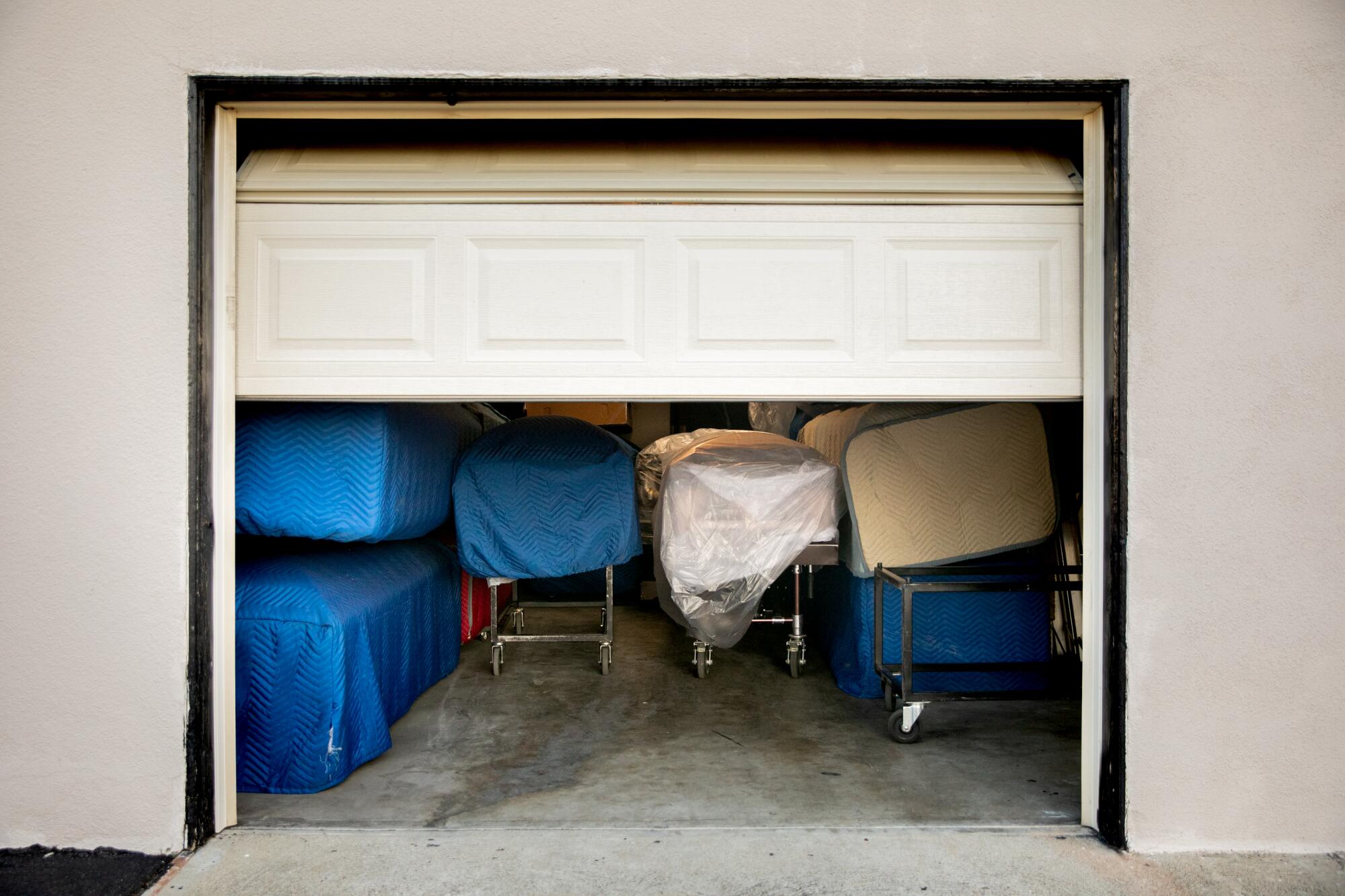
He doesn’t know for sure because they’ve been too busy to count. The coronavirus is wreaking havoc, but there have been fewer deaths from other causes, such as car accidents, so maybe there will be some balancing out in the long run, he said.
The virus has caused them to take precautions. The body of someone who dies of COVID-19 is kept in storage for at least three days before it is processed. Every other pew in the chapel is roped off, limiting how many people can attend visitations and services. Masks are required on all visitors. Staff members get tested regularly.
“Before COVID, about 95% of our interactions with people were in person,” Zakar said. “Now, probably 70 to 80% of it is handled on the phone.”
He said he misses providing the human touch, “but everyone understands. We’re all doing the best we can with what we have.”
Details, details
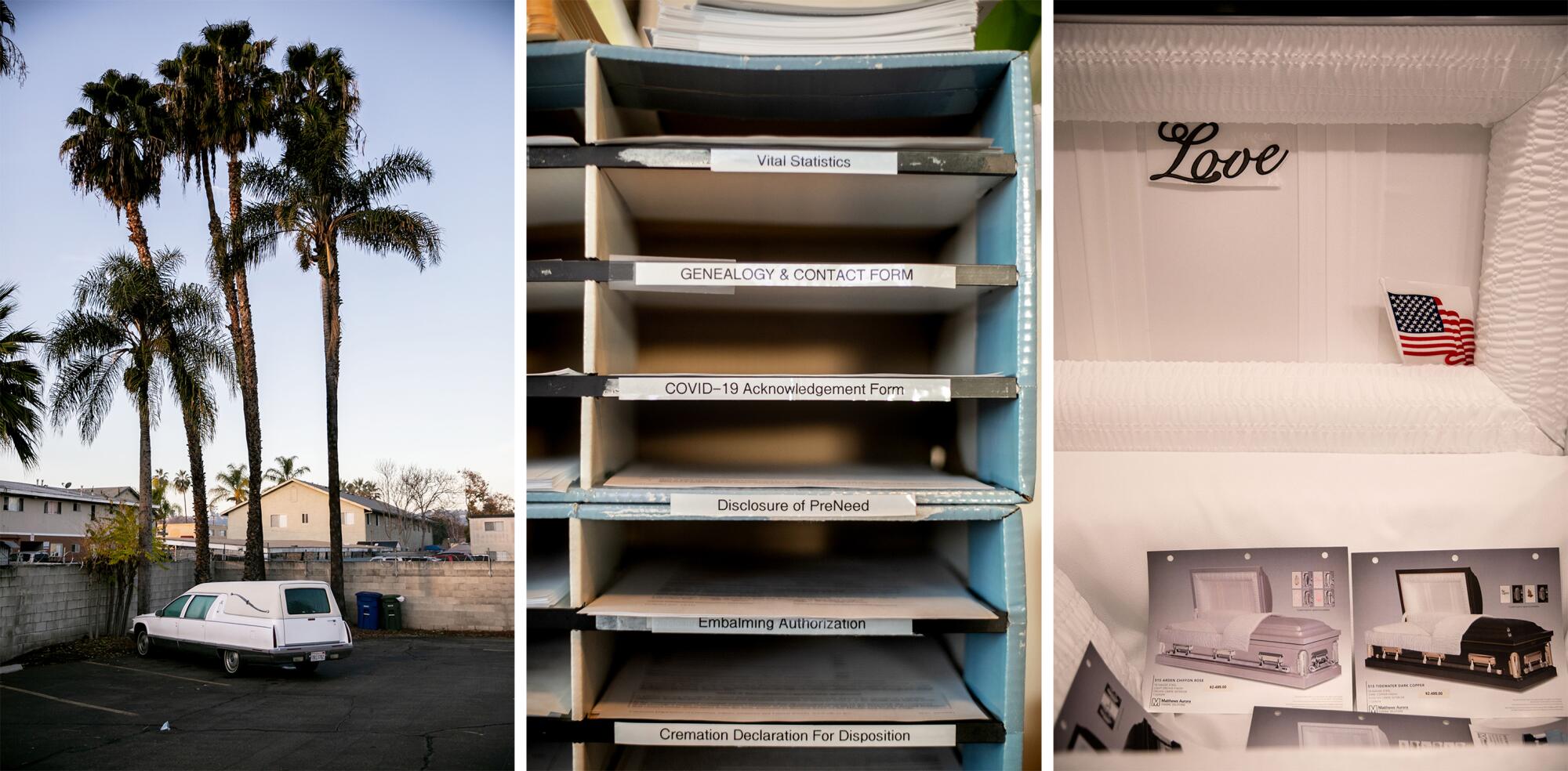
Nine people work at the mortuary, which despite its quiet exterior has a lot of moving parts.
Bringing the body from the hospital or morgue. Figuring out where to have a memorial service and when. Helping family members pick out a casket or urn. Getting clothes for the body. Tracking down death certificates. Writing obituaries.
The spreadsheet projected on the wall in the office details personal touches requested by families. In one casket, a model airplane. In another, a note under a pillow. Some of the bodies are headed out of town, to Mexico. That means consulate paperwork.
“We have a saying here: If it’s legal and if it’s humanly possible, we’ll do it,” Zakar said. His staff gave him a coffee mug with that written on it for his last birthday.
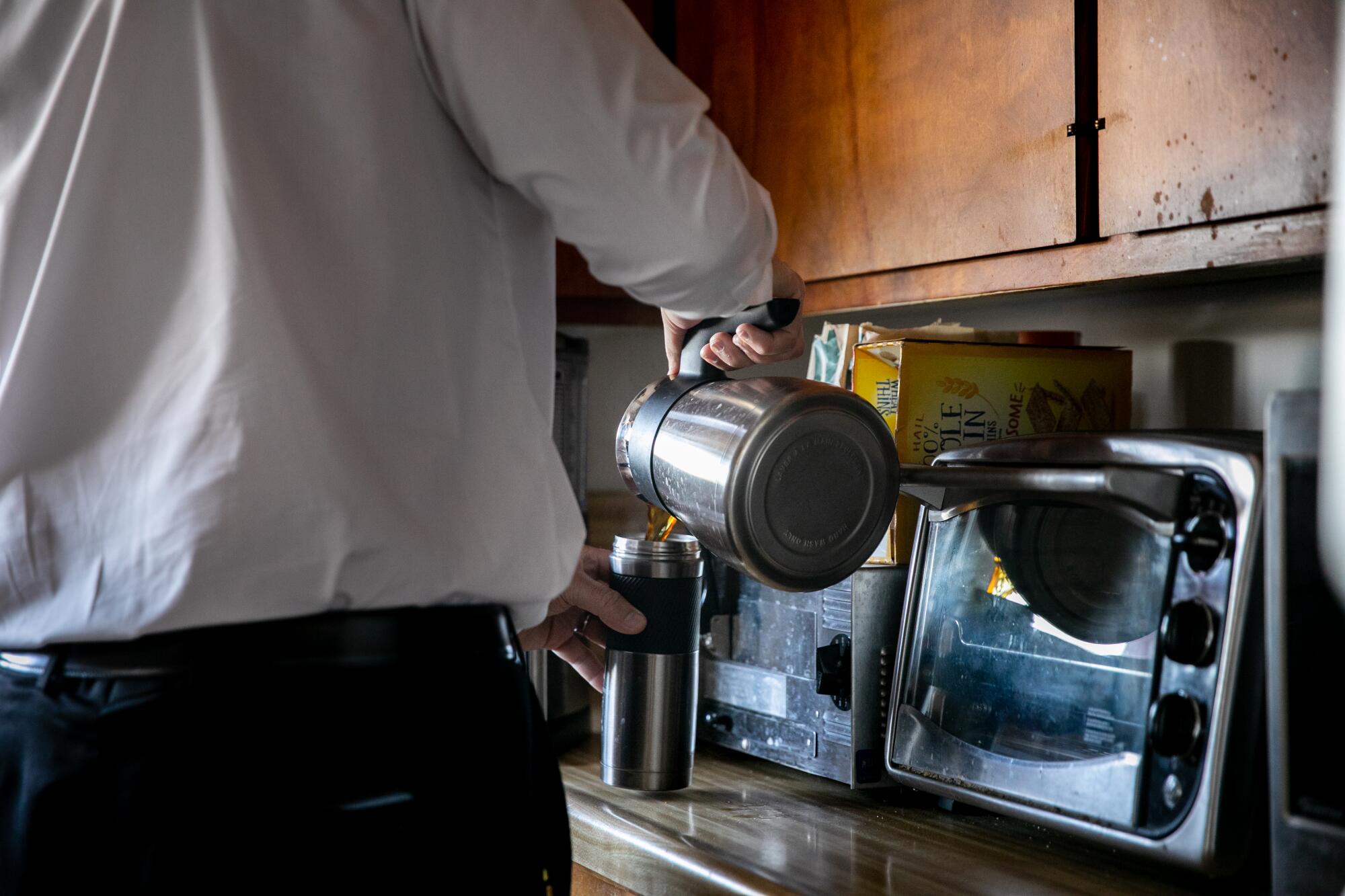
Watching them at work in the office, they often seem to know what to do without being asked. Someone gets on the phone to a hospital, trying to locate a body. Someone calls a church about the availability of a priest.
Zakar takes a phone call from a customer and calls out to no one in particular, “Can we do St. Peter’s at 2 p.m.?”
They can. They do.
Thursday morning, Zakar and Oliver, the embalmer, loaded a casket in one of the hearses for a graveside service at Holy Cross Cemetery in San Diego. The man had died from COVID.
Dressed in his uniform — dark suit, white shirt, striped tied — Zakar drove to the cemetery and parked next to a curb. He gave white gloves to five people serving as pallbearers and guided them through the process of unloading the casket and walking it to a lowering device atop the already-dug grave.
While a priest blessed the casket with holy water and offered prayers, Zakar stood off to one side, head bowed, face masked, hands clasped in front of his waist.
“People ask me all the time if I have gotten immune to death because I am around it so much, and the answer is no,” he said earlier, standing in the mortuary office. “I love hearing the stories. People laugh, and I laugh. People cry, and I cry too.”
What he does isn’t really about the dead anyway, he said. It’s about the living.
“You’re helping them through the process,” he said, “helping them through their grief. You’re there for them, and it’s the little things that matter.”
Even in COVID times?
“Especially in COVID times.”
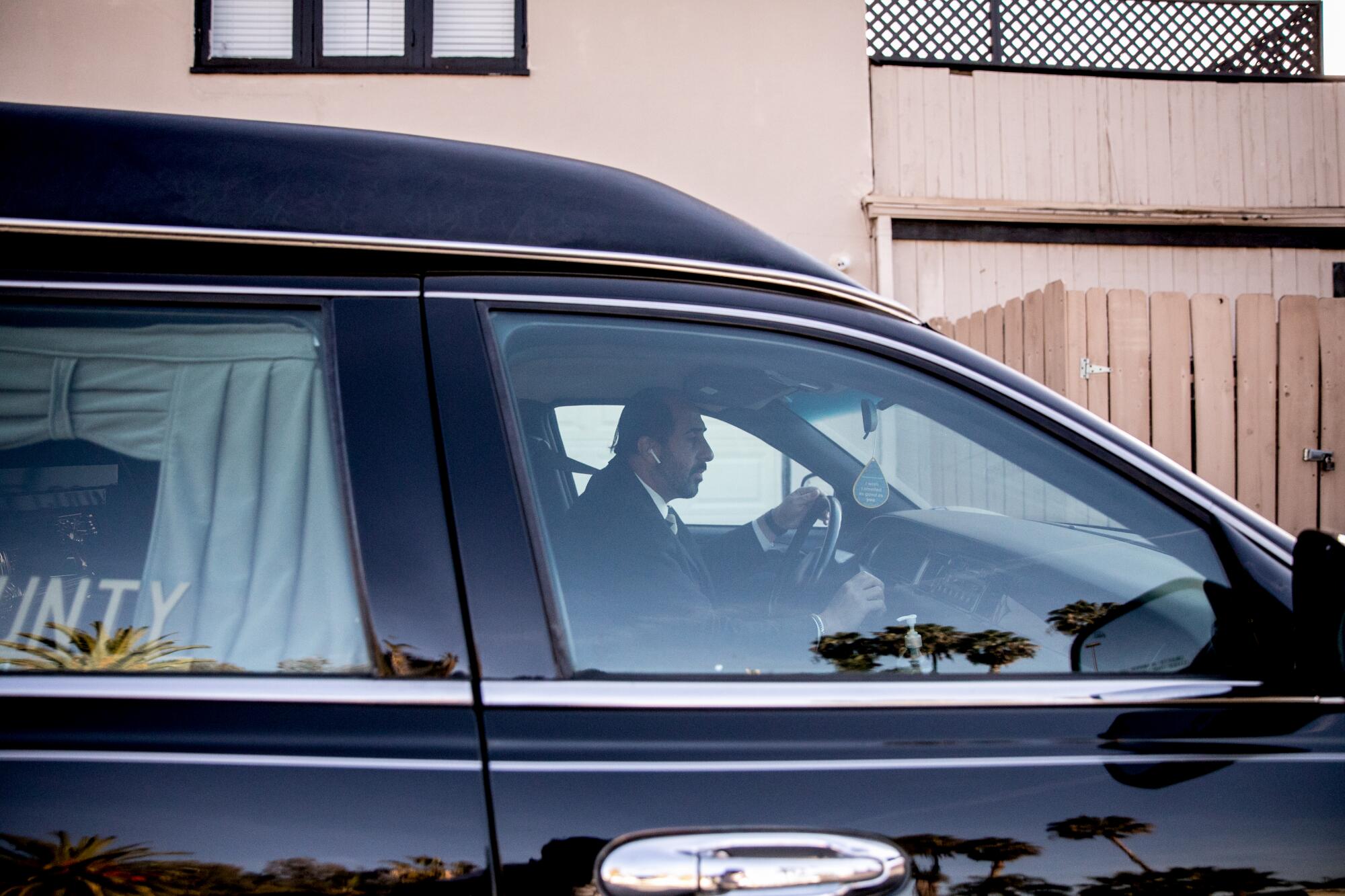
More to Read
Sign up for Essential California
The most important California stories and recommendations in your inbox every morning.
You may occasionally receive promotional content from the Los Angeles Times.

